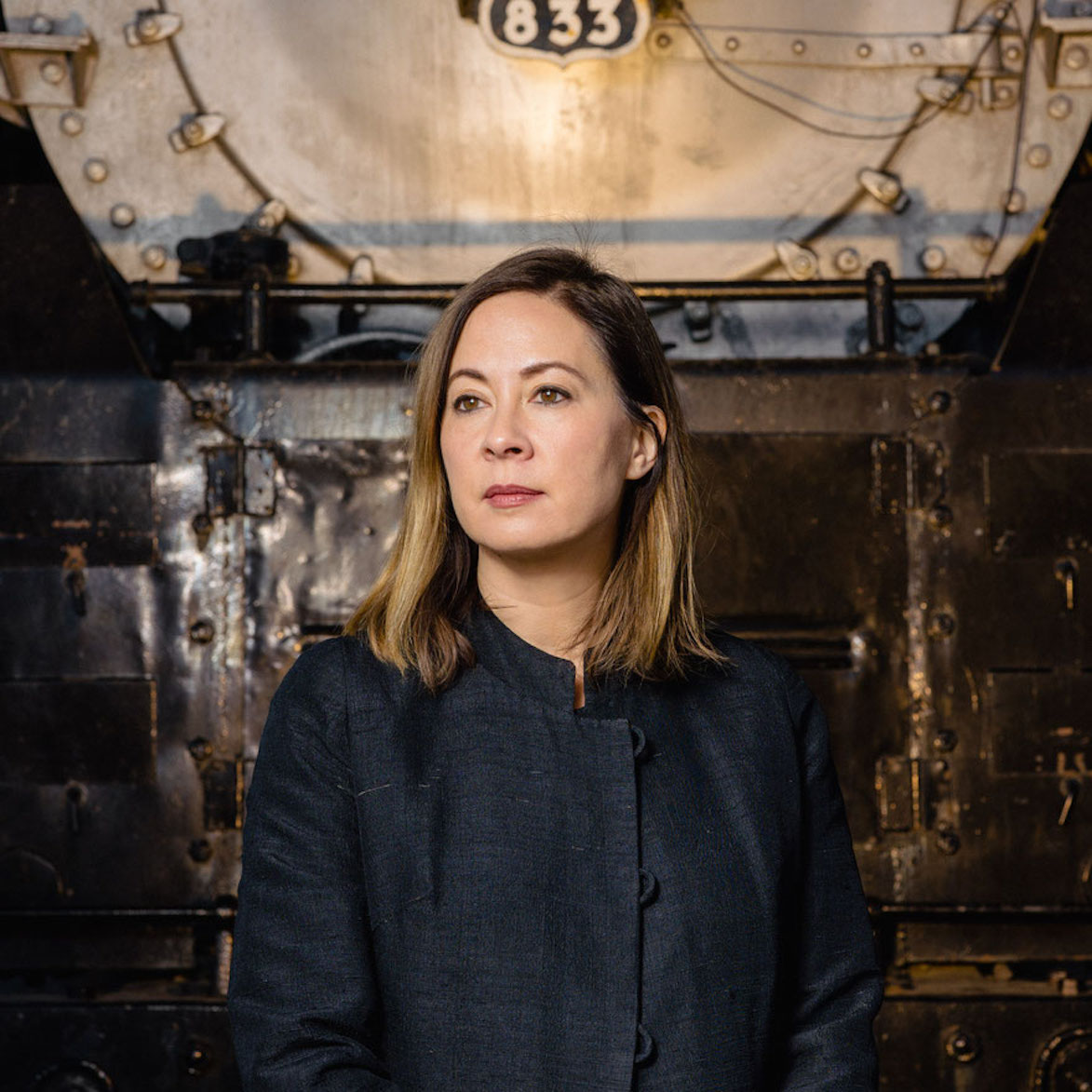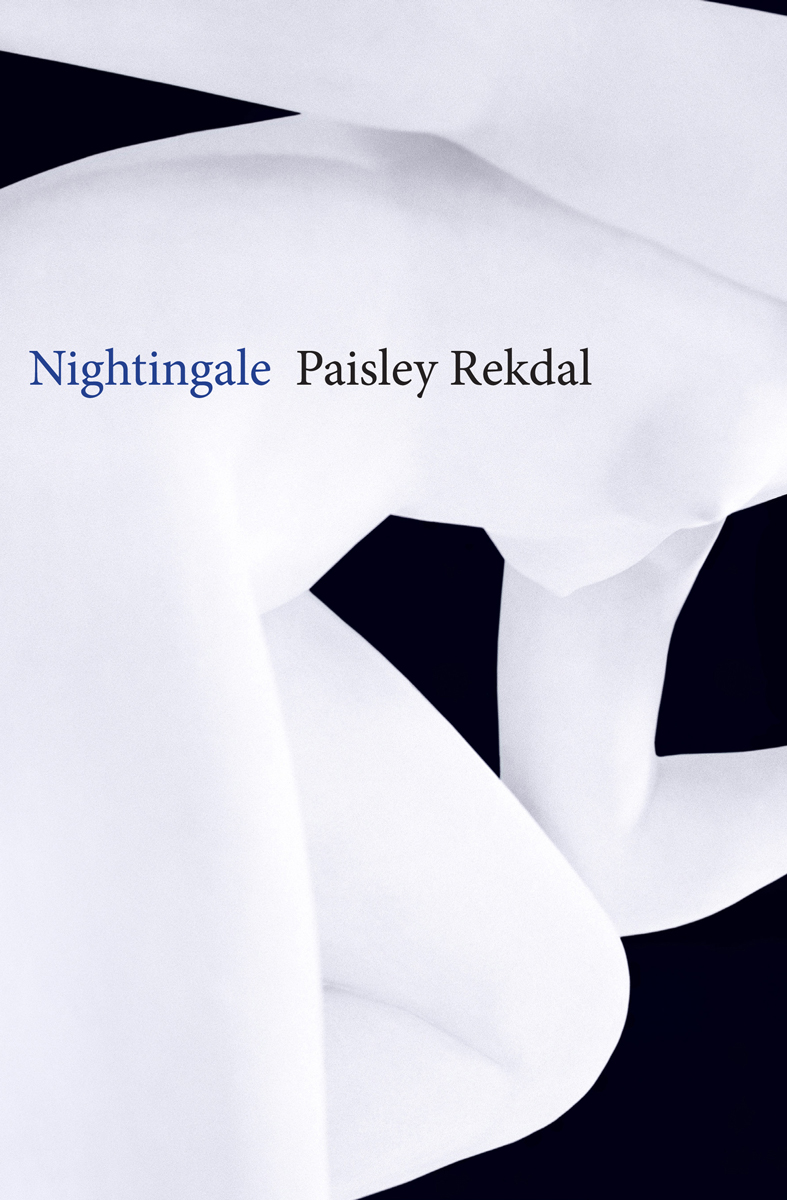Quick swim upthrough my headlights: gold eyea startle in black: green, swift glanceraking mine. A full secondwe held each other, gone.Gone. And how did I knowwhat to call it? Lynx, the only possiblereply though I’d never seen one. The carfilling with it: moonlight,piñon: a cat’s acrid smellof terror. How quickly the gray bodyfled, swerving to avoidmy light. And how oftenthat sight returns to me, shames meto know how much more this fragmentmatters. More than the broad backof a man I loved. More than the imageof my friend, cancer-struck, curledby her toilet. More than my regretfor the child I did not have, which I thoughtonce would pierce me utterly. Nothingbeside that dense muscle, faint gold guard hairsstirring the dark. And if I keepthese scraps of it, what did it keep of me?A flight, a thunder. A shield of lightdropped before the eyes, pinnedinside that magnificent skull only timewould release. Split back, fadeand reveal. Windwould open him. Sun would turn himcommonplace: a knot of flies, a rib cageof shredded tendon, wasp-nestfragile. The treasure of him, like anything,gone. Even now, I thumb that facelike a coin I cannot spend. If something in meever lived, it lived in him, fishing the coldtrout-thick streams, waking to snow, dyingwhen he died, which is a comfort.I must say this. Otherwise, I myselfdo not exist. It looked at mea moment. A flash of green, of goldand white. Then the dark came downagain between us. Once, I was afraidof being changed. Now that is done.The lynx has me in its eye.I am already diminished.
Driving to Santa Fe
Feature Date
- May 10, 2019
Series
Selected By
Share This Poem
Print This Poem
Copyright © 2019 by Paisley Rekdal
All rights reserved.
Reproduced by Poetry Daily with permission.

Paisley Rekdal is the author of three works of nonfiction and five previous books of poetry, including Animal Eye, which won the 2013 UNT Rilke Prize and was a finalist for the 2013 Kingsley Tufts Poetry Award, and Imaginary Vessels, which was a finalist for the 2018 Kingsley Tufts Poetry Award. Her work has appeared in The American Poetry Review, The New Republic, the New York Times Magazine, Poetry, Tin House, and five editions of The Best American Poetry series, among other publications. A former Guggenheim fellow and NEA recipient, in 2017 she was elected Utah’s poet laureate.
Nightingale is a book about change. This collection radically rewrites and contemporizes many of the myths central to Ovid’s epic, The Metamorphoses, Rekdal’s characters changed not by divine intervention but by both ordinary and extraordinary human events. In Nightingale, a mother undergoes cancer treatments at the same time her daughter transitions into a son; a woman comes to painful terms with her new sexual life after becoming quadriplegic; a photographer wonders whether her art is to blame for her son’s sudden illness; and a widow falls in love with her dead husband’s dog. At the same time, however, the book includes more intimate lyrics that explore personal transformation, culminating in a series of connected poems that trace the continuing effects of sexual violence and rape on survivors. Nightingale updates many of Ovid’s subjects while remaining true to the Roman epic’s tropes of violence, dismemberment, silence, and fragmentation. Is change a physical or a spiritual act? Is transformation punishment or reward, reversible or permanent? Does metamorphosis literalize our essential traits, or change us into something utterly new? Nightingale investigates these themes, while considering the roles that pain, violence, art, and voicelessness all play in the changeable selves we present to the world.
Poetry Daily Depends on You
With your support, we make reading the best contemporary poetry a treasured daily experience. Consider a contribution today.




